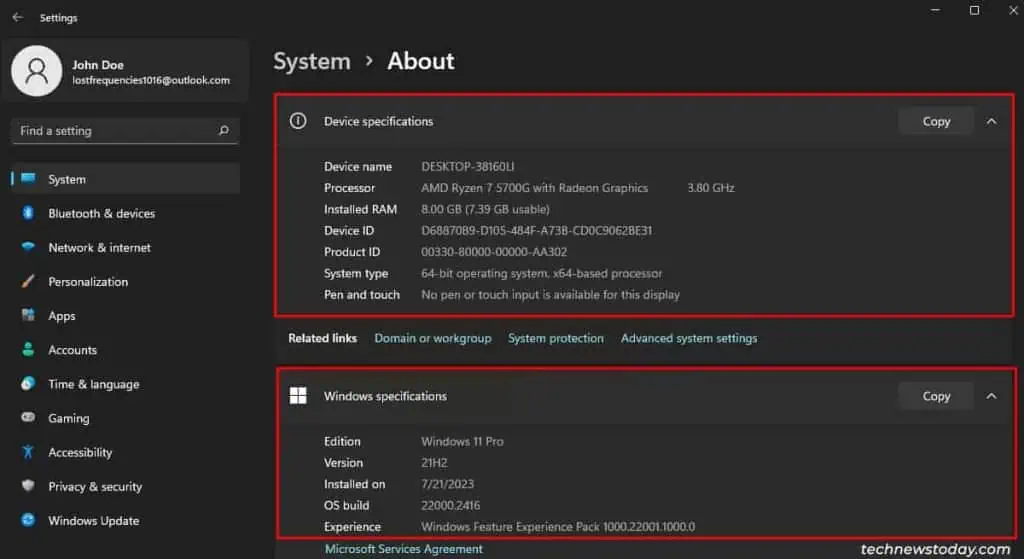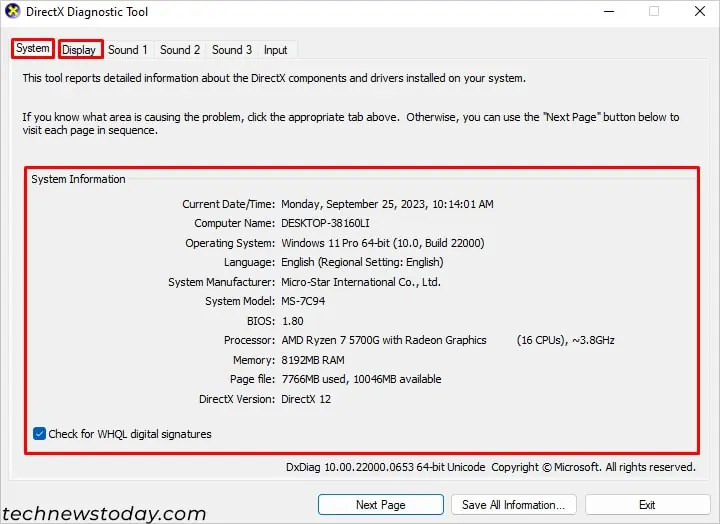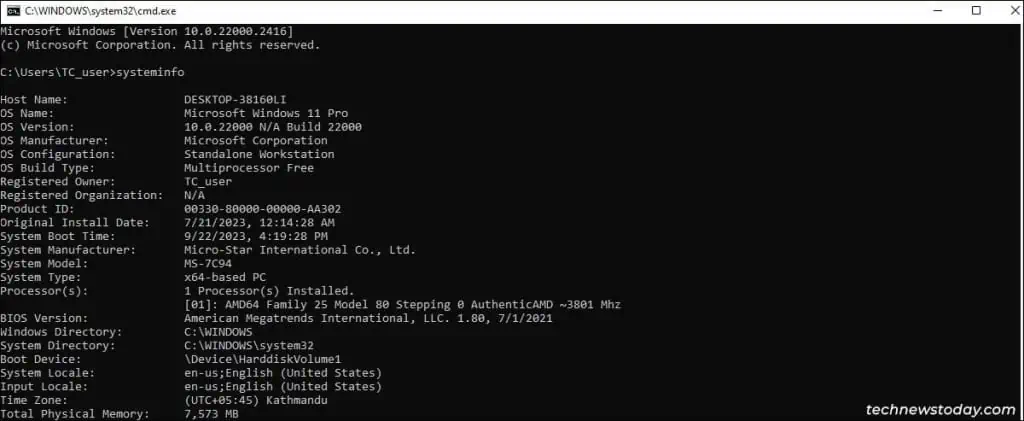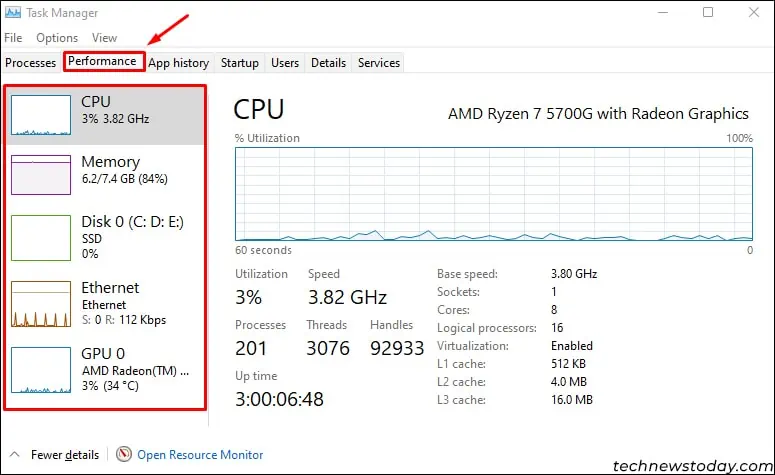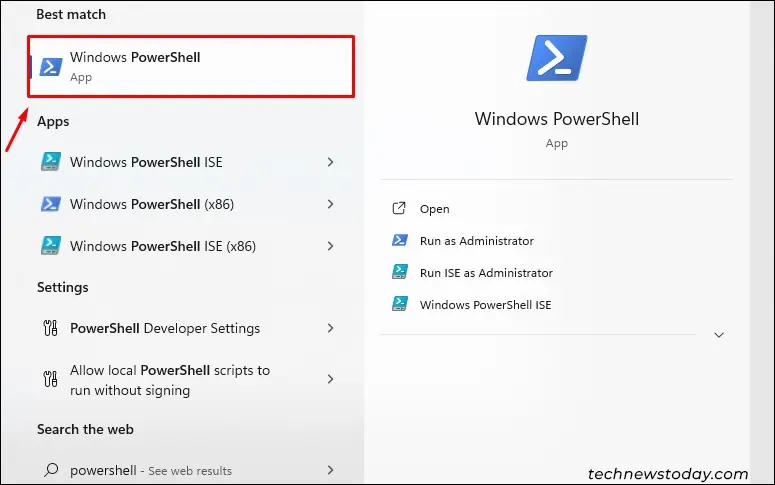Knowing thetechnical specificationsof your computeron Windows 11 can be useful for many reasons.
It helps withtroubleshooting performance issuesand checking compatibility for new software or hardware. It also satisfies curiosity about what’s under the hood.
Fortunately, Windows 11 makes it easy to find key details about your processor, memory, graphics card, and other components.
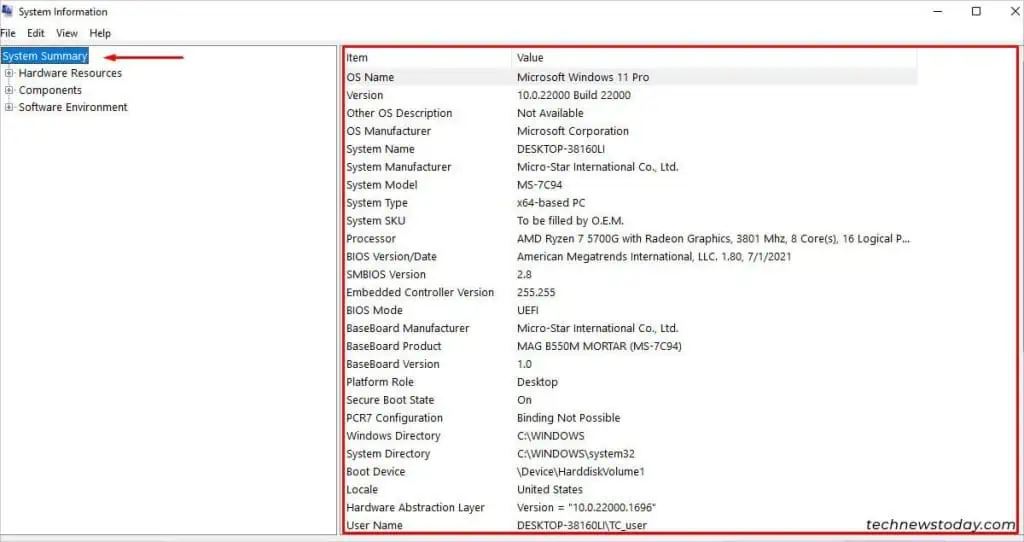
From System Information App
Through this method, you may get full-fledgedinformation about your processor,motherboard model, memory,BIOS version, etc.
The status of your DMA, I/O, Memory, etc. can be viewed under theHardware Resourcestab. Whereas, the multimedia, network, or input status can be viewed under theComponentstab.
Alternatively, you may view yourDevice specificationsandWindows specificationsthrough your system settings.
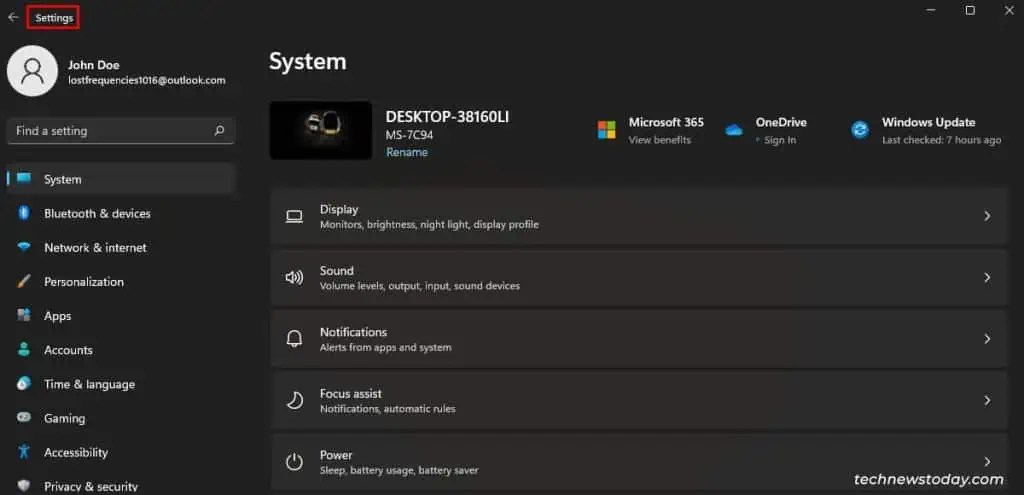
Via DirectX Diagnostic Tool
DirectX Diagnostic is a great option to view yourPC’s GPU specs. you may access DirectX Diagnostic through the Run prompt. Additionally, the drivers,page file information, etc. are displayed here.
Run Dedicated Command in CMD
Likewise, theCommand Promptcan also be used to check your PC’s specs. When you insert and run the “systeminfo” command, your PC specs will be displayed in thecommand prompt.
you may view specifications related toDDR type,RAM speed, CPU, Disk, Ethernet, WiFi, GPU, and so on through the Task Manager. Follow these steps to access these details:
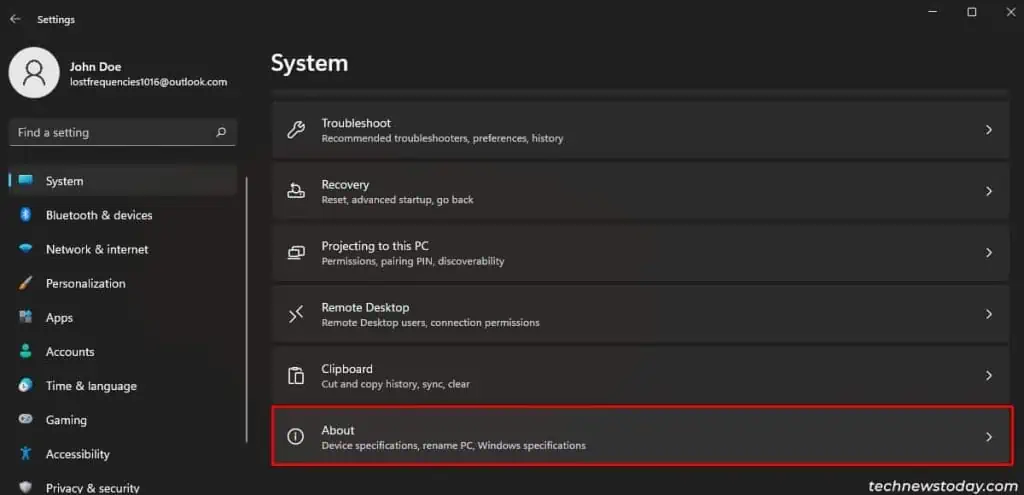
you may also display your PC specs on your Powershell prompt once you’ve entered and run the command “Get-Computerinfo.”
Try Third-Party Software
Lastly, there are several third-party software that help to monitor your System specifications.CPU-Z,HWiNFO, andHWMONITORare some of the most used third-party software.
